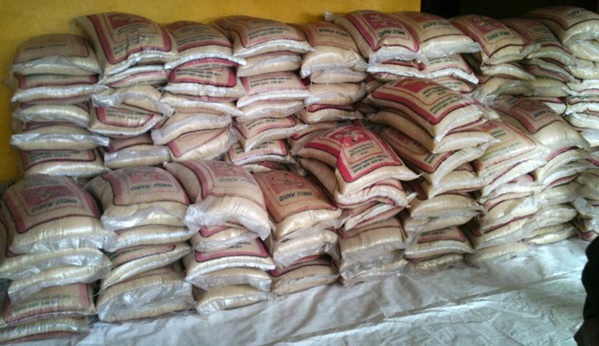MONROVIA – The global rice market is facing potential turmoil as the Indian government’s recent decision to increase the surcharge on rice production is poised to affect rice exportation worldwide. This development is expected to lead to a significant increase in the price of rice globally, creating ripple effects in rice-dependent economies, including Liberia.
In response to the anticipated price hikes, the Liberian government has promptly engaged with major rice importers to stabilize the domestic market. According to reliable sources, Minister of Commerce Amin Modad held a crucial meeting with importers this past weekend to address the situation. The importers had requested a retail price increase of rice to $20, up from the current $17.50, citing the global economic crisis and increased costs due to extended shipping routes and additional charges.

However, the Ministry of Commerce rejected this proposal, urging importers to remain reasonable to avoid burdening Liberian consumers. The government stood firm against selling the 25kg Indian parboiled rice for $20, despite importers’ arguments that they could not sustain their businesses under the current pricing structure.
This contention is rooted in a history of price increase requests by rice importers. In October 2023, during George Weah’s administration, importers had sought an increase from $17.50 to $20, but the request was deferred due to the political climate of the election period. The new administration received a similar request in February, outlining reasons such as a newly imposed 20% surcharge and increased transportation costs due to the Middle Eastern conflict.
Despite these pressures, Minister Modad appealed to importers to maintain lower prices, given the sensitivity of rice as a staple commodity. After intense discussions, a compromise was reached to reduce the rice price to $16.50, with importers agreeing to invest in local rice production and ensure market stability until May. This agreement, however, was challenged when importers sought another price increase to $21 in mid-May, following an additional 4% Indian tariff hike.
Ultimately, the government and importers settled on the following measures:
The price would be increased to $18.50.
Different varieties of rice would be made available at lower prices.
Assurance of no market shortages.
An initial $200,000 investment by importers into local rice production, with plans for further investment.
Economic experts suggest that the best long-term solution for Liberia is to bolster local rice production to mitigate dependency on volatile global markets. This strategy could provide more price stability and food security for the country in the face of fluctuating international rice prices.







